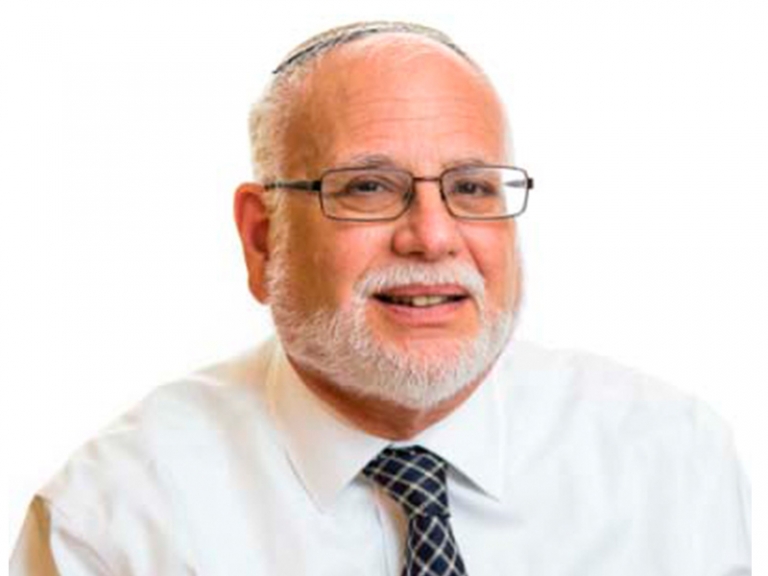D'var Torah by Dr. Kalman Stein, Head of School

Dear Hebrew Academy Community:
As I think about the still very new school year and about the period of introspection and Teshuva in which we are all engaged, I bring to your attention an interesting question about repentance which emerges from Parashat Ha’azinu which is read each year on either the Shabbat before or the Shabbat after Yom HaKippurim.
At the end of the Parasha Hashem once again tells Moshe that he will not have the privilege of leading Am Yisrael into the Land of Israel “because you trespassed against me in the midst of Bnai Yisrael at the waters of Merivat-Kadesh” and commands Moshe to ascend the mountain on which he was going to die.
Every school child knows the story. Hashem commanded Moshe to speak to the rock and, instead, Moshe struck it to bring water to the people. Biblical commentators have advanced dozens of explanations of exactly why Moshe acted as he did and exactly what his sin was. There is no clear conclusion. We must be satisfied with Rambam’s comment in his commentary on Pirkei Avot: “This is a puzzlement about which much has been written and about which many questions have been asked.”
Whatever the nature of the sin was, there are two questions raised by Rabbi Dr. Jacob J. Schacter in his article “Teshuva, Punishment and the Leadership of Moshe.”
First, why did this transgression result in Moshe being denied his most fervent life’s wish? Moshe had led the people for four decades. He had, in the words of the Midrash, taken them out of Egypt, split the sea, brought down the manna, raised for them the well, and so much more. No one ever had greater merits than Moshe; no one has ever been closer to God. Even if his sin was a terrible one, did it warrant this harsh punishment?
Second, an even more important question: All of us have spent the last weeks engaged in Tefilla and we are assured by the Torah again and again that one who truly repents is forgiven. Surely Moshe was aware of Hashem’s displeasure. Surely, he regretted what he had done and resolved never to do it again. Were the Gates of Teshuva closed to the greatest of all Jews? Are we being told right before or fight after Yom Kippur that Teshuva really makes no difference, that forgiveness is unattainable? If the greatest of the great was not able to earn atonement, what chance do we have?
Rabbi Schacter answers his questions by reminding us that there were two incidents when Moshe was told to extract water from a rock. The first time Moshe was commanded to strike the rock. The second time he was commanded to speak to the rock.
Why did Hashem command different means of accomplishing the miracle? When Moshe struck the rock the first time, he did so for the generation which had personally experienced the power and awesomeness of God in Egypt and during the Exodus. God’s miracle for them had to be awesome and powerful, of the same order of magnitude as the other miracles they had experienced. So, Moshe was commanded to dramatically strike the rock.
The next generation was one for which God had performed miracles of a different kind. There had been no thunder and lightning. They had experienced manna falling gently from Heaven, a well quietly supplying water, and clouds of glory providing protection. This generation was accustomed to a more subtle and quiet God. So, when this generation needed water Moshe was commanded to speak to the rock. “This was a generation that would not understand a rock-hitting God; it could respond only to a rock-speaking God.”
Looked at from this perspective, God’s denial of Moshe’s fervent wish was not a punishment and Moshe’s inability to change Hashem’s decree should not be understood as the inefficacy of Teshuva. When Moshe struck the rock Hashem realized, perhaps, that Moshe was looking at and communicating with the second generation in exactly the same way as he had with the first generation. Therefore, Hashem concluded, Moshe was not the appropriate leader to bring this generation into Eretz Yisrael.
Of course, Moshe could be forgiven as an individual for whatever he had done. The problem, however, was not with Moshe as an individual but with Moshe as a leader. Someone new was needed to lead them at this crucial point of their development as a nation.
Rabbi Schacter concludes with a message which we parents and educators who too often think in terms of our own upbringing, of the methods of our parents and teachers, need to internalize:
“The essence, the substance of the teachings of Judaism needs to be constant from one generation to the next. But the idiom, style, manner, approach and mode of communication…may, and for some, must change from one generation to the next.”
What worked for our parents and teachers; what once worked in Eastern Europe, or the Middle East, or right here in Miami often does not work with our kids today. We must continually work to find ways to convey the values of Torah, undiluted and unchanging, but articulated and delivered in a manner which works for each new generation of young men and women.
Dr. Kalman Stein
Head of School
kstein@rasg.org

